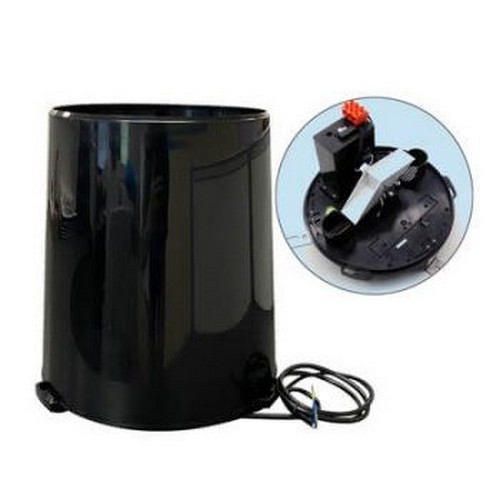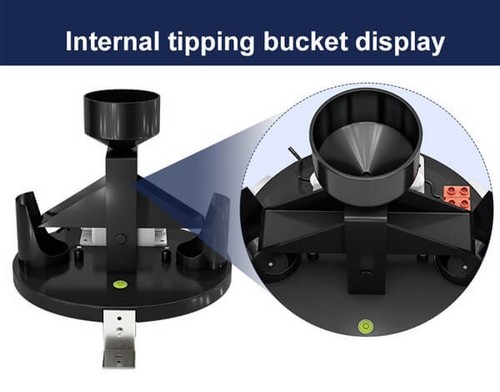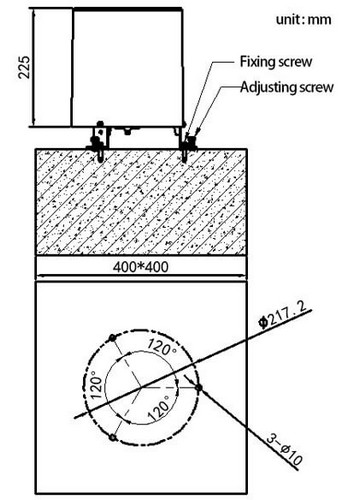For Downloads | ||
| Setup Software | Testing Software |
For Purchase | Call / WhatsApp / Telegram: +91 8148834200 | |
For Technical Support | Call / WhatsApp / Telegram: +91 8148834211 | |
The
tipping bucket of our rain gauge is a three-dimensional streamlined design and
is designed with a drooping curved diversion tip. Its appearance is beautiful
and smooth, the water tipping performance is better, and it is easy to clean
and maintain.

It is a plastic rainfall gauge on
a weather station. Compared with the standard stainless steel tipping bucket
rain gauge, it is a more commercial rain gauge with a low price. It adopts the
working principle of the standard tipping bucket rain gauge, but due to
material problems, accuracy and service life are slightly lower than stainless
steel rain gauge. If you are a beginner in the rain gauge, or if you have a
limited budget and want to buy a cheap rain gauge, then abs tipping bucket rain
gauge will be your best choice.
ABS rain gauge parameters
Inner diameter: Φ200mm/8 inch
Resolution: 0.2mm
The acute angle of cutting edge: 40°~45°
Operating Temperature: 0~50℃
Working humidity: <95%(40℃)
Measuring range: 0mm~4mm/min
Accuracy: ≤±7%
Power supply: 10V~30V DC
Output signal: RS485/Pulse
Mounting holes: Three mountings
Place of origin: China

Rain gauge description:
The
tipping bucket of our rain gauge is equipped with constant magnetic steel, and
the reed switch bracket is equipped with a reed switch. When the equipment
leaves the factory, the magnetic steel, and the reed switch have been adjusted
at a suitable coupling distance so that the output signal of the instrument and
the number of flipping buckets can be determined.
ABS tipping
bucket rain gauge features
Our
tipping bucket rainfall gauge is composed of an integrated shell, filter,
funnel, reverse flow dumper, terminal block, leg bracket, reed switch, control
box, rain gauge base, etc. Among them, a tipping bucket shaft, around the
horizontal bubble, a dry reed switch bracket, and a signal output terminal are
installed on the rain gauge base. Unlike other tipping bucket rain gauges, the
tipping bucket sleeve of our rain gauge is an integrated positioning structure,
and the tipping bucket is installed in the shaft bearing through the tipping
bucket shaft. The internal structure of our rain gauge has been assembled
before leaving the factory, and there is no need for on-site installation of
the internal structure, which brings convenience to on-site installation

ABS rain gauge installation
When installing the outdoor
ground and roof, first make the cement installation foundation according to the
requirements, and the plane of the cement foundation should be horizontal. The
size of the cement installation foundation is generally a 40cm×40cm square base
with a height of not less than 30cm or a circular base with a diameter of 40cm.
It is required that the height of the rain-bearing mouth of the instrument is
70cm from the ground level, and no shelters higher than the rain-bearing mouth
of the instrument are allowed within 3 to 5 meters around the mouth of the
instrument.
Install a
fixed rain gauge to adjust the level of the rain opening
Drill 3 mounting holes with a diameter of 10 cm and
a depth of 8-10cm on the cement foundation, place the expansion bolts in the
mounting holes, and lock them with lock nuts, and then install the instrument
base on the 3 height-adjusting support nuts, and adjust the support nuts Use a
level to measure whether the ring mouth is in a horizontal state, and finally
use the upper lock to fix the instrument.
If you have special installation requirements,
please contact our professional technicians.
FAQ
What is a
rain gauge used for?
A rain gauge is a special device used to collect
precipitation and to measure the amount of precipitation in millimeters. It is
suitable for meteorological stations (stations), hydrological stations,
environmental protection, flood control and drainage, as well as agriculture
and forestry departments to measure precipitation.
How a tipping
bucket rain gauge works?
The tipping bucket rain gauge receives rainwater
through the rain-bearing mouth, and flows into the tipping bucket through the
funnel mouth. When the accumulated water reaches a certain amount (such as
0.02mm), the tipping bucket loses its balance and turns over. The device sends
a pulse or 485 signal, and the precipitation can be automatically calculated
after accumulating the number of times.
How accurate
are tipping bucket rain gauges?
First, the rain gauge needs to be disassembled,
re-titrated to adjust the base point, and then the distance of the base point
of the bucket turning over is adjusted. (This process requires professionals to
operate)
Next, adjust the horizontal bubble inside the rain gauge, and use a small
wrench to adjust the horizontal screw so that the horizontal bubble emerges in
the center.
What does
tipping bucket rain gauge measure?
Rainfall
A tipping bucket rain gauge is a device that automatically measures accumulated
rainfall. Its simple operation and accurate measurement make it the most widely
used rain gauge.
What are the
different types of rain gauge?
The three main types of rain gauges are standard
rain gauges, tipping bucket rain gauges, and gravimetric rain gauges. Although
the basic operation of rain gauges is generally not that different from these
major rain gauge types, it is possible to further differentiate how they work
and how they provide data.
What is the
purpose of a rain gauge?
Measuring rainfall in a certain area can adjust
agricultural production, analyze climate change, conduct hydrological research,
etc.
Where is the
best place to put a rain gauge?
Standard Rain Gauge: One of the easiest places to
install a standard rain gauge is at the top of a fence post. Just make sure you
choose an open area, level the gauge, and make sure the top of the gauge is
higher than the top of the fence post.
ABS Tipping Rain Guage
- Product Code:
- Availability: In Stock
-
Rs.9,750.00

